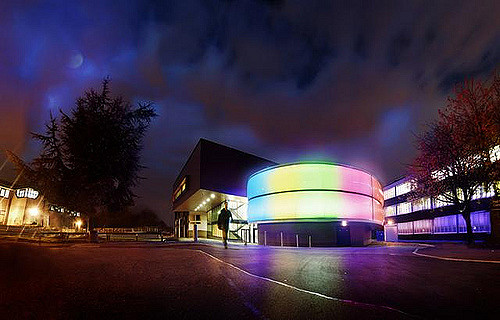
Students in Salford Law within the Salford Business School are being trained to provide assistance for those who cannot afford legal representation. At the same time they are helping to remove the stain of the discredited “McKenzie Friend” from the legal system.
The funding for the system of legal aid for those who cannot afford to pay privately for legal services has been under attack for quite some time. The legal aid reforms of 2013 accelerated this process and has left large swathes of the law without any funding for those who are most needy. This includes almost all Family law cases except those in which domestic violence is alleged. In addition to traditional legal cases there has also been a decline in legal services available to those who wish to appeal against decisions to deny or to restrict welfare benefits. Thus the most vulnerable and defenceless are often left with no advice and must face a bewildering legal system without any assistance.
Legal aid changes
In 2011 it was estimated that 20% of litigants had no access to legal services. In the months following the legal aid reforms in 2013 this number rapidly increased to more than 50%. This means that one in two parties to a legal dispute had no access to legal advice or legal representation in a variety of serious cases which could include the loss of a home, or the loss of children.
A local study of court activity in Greater Manchester in the week commencing the 7th September 2015 indicated that in relation to civil matters 72% of participants did not have legal representation and in Family Law matters 90% of parties did not have access to legal services.
McKenzie friend
Since the legal aid cuts in 2013 there has been a rise in the use of a “McKenzie Friend.” This is a practice named after the case of McKenzie v McKenzie [1971] P 33 in which the Court of Appeal decided that a litigant in person could receive assistant from someone who was not a qualified legal profession.
The “Mackenzie Friend” was permitted to provide moral support, note taking, procedural advice, the preparation of case files, and to suggest which questions to ask. However, this practice was soon exploited and the unqualified and the unscrupulous soon began to charge fees to the vulnerable and desperate.
As a result Scotland banned the charging of fees by a “Mackenzie Friend” and in early 2016 the Judicial Executive Board published a proposal to do the same in England and Wales.
CLOCK initiative

Law students at the University of Salford have joined the CLOCK initiative. The Community legal Outreach Collaboration project has now been adopted at the University of Salford. In February 2016 the first Salford Law student began their initial training to provide assistance in the area of Welfare Benefits appeals.
This area of law has been chosen for the initial activity for CLOCK at Salford because there is great need in this area of the law in Salford. It is anticipated that CLOCK will develop into other areas of law in due course.
https://www.youtube.com/watch?v=Z2YxzcoB-nc
Thus students in the Salford Business School will be using the skills developed within the University to provide a real service to the local community and to have a real world impact.
The University of Salford prides itself on being an external facing University which serves and develops its local community and it is believed that CLOCK is a perfect example of this. In this the University has received the support of the local judiciary, the Salford Citizen’s Advice Bureau and Salford City Council.
Clock Launch event -great initiative for law students @salfordbizsch @SalfordLawSoc @kenworthyslaw @clockjustice pic.twitter.com/QWBD6GTr1i
— Dr Jonathan Lord (@drjdlord) April 12, 2016
To find out more about studying Law at Salford Business School and how you could get involved in the CLOCK initiative as part of your course, please visit www.salford.ac.uk/law or email me S.K.Sullivan@salford.ac.uk